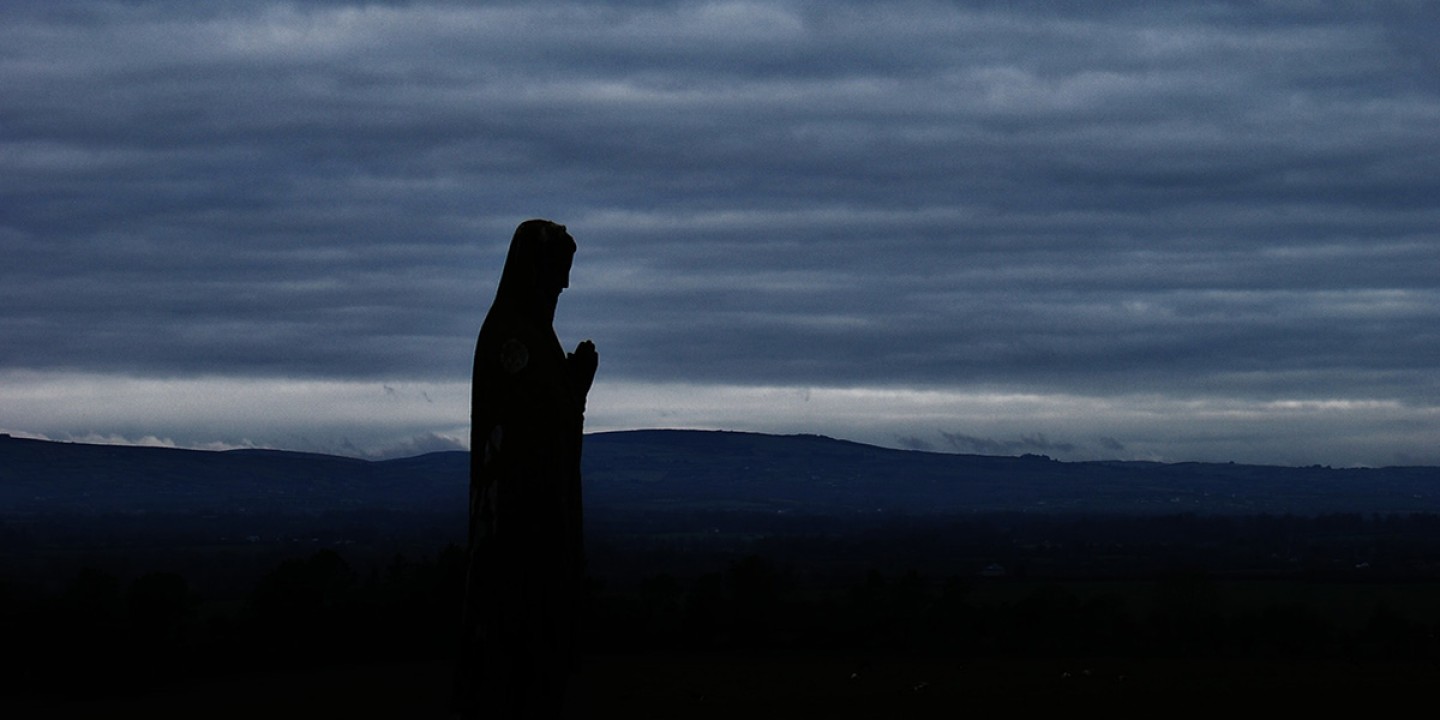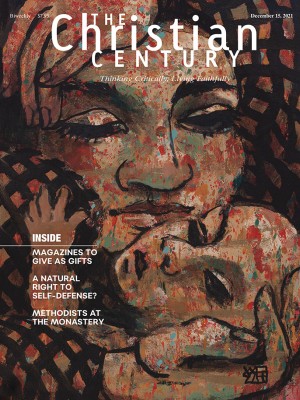Imagining a new political economy with Miriam of Nazareth
Abortion is about real lives enmeshed in the realities of home and work and wages and debt.

In the 1970s the government of Argentina banned all public recitations of the Magnificat after the Mothers of the Plaza de Mayo, whose children had been disappeared, published it as their manifesto of nonviolent resistance to the ruling military junta. Guatemala did the same in the 1980s. Generations earlier, British authorities in the East India Company excised it from evening prayer. Mary’s fiery speech at the beginning of Luke’s Gospel may be the appointed canticle for vespers, but it has also emboldened the colonized to resist their oppressors and the traumatized poor to claim for themselves God’s preferential love.
In White North American churches, when the Magnificat is read during Advent and little girls kneel sweetly at the crèche during pageants, it is difficult to conjure Miriam of Nazareth, revolutionary forerunner (no less so than John the Baptist) of a Messiah born into the economic disparities and class conflicts of an occupied land. The Virgin Mary of sentimental Christianity we know well; Miriam the Jewish peasant who gives voice to her people’s desperate longing for liberation—not so much.
Read our latest issue or browse back issues.
In Luke’s narrative, Mary makes her proclamation after she offers her fiat (“let it be done”) in response to an encounter we also tend to sentimentalize, sidestepping thorny questions about power and consent and how best to interpret the scriptural trope of angelic visitation. And this unexpected pregnancy? We may idealize this part of the story most of all.
Since last year, several state legislatures have banned abortions at very early stages of gestation. As the courts continue to hear challenges and render decisions, the laws shift back and forth. For many Christians, abortion is the nonnegotiable: the issue that determines where they go to church, who they can be friends with, and how they vote. But it wasn’t until the 1970s that abortion was used to organize evangelicals into a reliable voting bloc for electing conservative politicians. Before that, abortion was considered a Catholic issue, and the Southern Baptist Convention passed resolutions on four separate occasions affirming a woman’s right to one. As Randall Balmer and others have argued, the antiabortion theopolitics forged by Jerry Falwell and others was meant to mask the racism that the religious right was eager to exploit around such issues as segregation and discrimination in private schools.
A key component of that project was making abortion first of all an “issue” that Christians are supposed to have a position on. But unexpected and unwanted pregnancies happen to real people who exist in time and space, in places of privilege and poverty, in suburbia and on city streets. These are people whose lives, like all our lives in varying degrees, are constrained by a political economy that systematically undermines human capacities for creating and sustaining social bonds—for cultivating contentment, creativity, safety, and delight in everyday life. Wage labor in the US economy can be spirit-crushing and, for many, backbreaking, as it functions within an ideology that assumes one’s worth is in one’s productivity.
To sustain this ideology and profit from it, capitalism depends on practices of provisioning and caregiving that it both romanticizes and refuses to remunerate: raising children, elder care, building and sustaining neighborhood connections. Most women by necessity are part of the labor force of the formal economy, while also doing care work for no compensation in the domestic economy.
So abortion is about real lives enmeshed in the realities of home and work and wages and debt. Material poverty for some, the trap of neoliberalism’s self-actualized professional for others, trauma and structural oppression for others—these are all conditions (and conditioning) that contribute to the decision to end the life of a fetus. Moreover, the inhumane laws of late reveal the continuing racialized component of abortion politics, given the disproportionate rates of criminalization in communities of color.
An early strategy for enforcing the new law in Texas was the aggressive pursuit of women seeking abortions, along with their physicians and their friends. Now, just the threat of being sued is proving sufficient to the cause. For all the emotive rhetoric around the life of the unborn, the fetus is rendered a legal abstraction and the pregnant woman a criminal to be prosecuted, of whom many seem eager to ask, “How do you plead?” In a different political economy, it might occur to us to ask instead the question Simone Weil posed to those in distress: “What are you going through?”
The Magnificat imagines a different political economy. Like all prophetic speech, it is both commentary on the present and a radical vision of God’s in-breaking future. In her song, Mary announces an economic reversal, a destabilizing of the status quo for the benefit of those at the mercy of corrupt systems. When she speaks of her own “lowliness” and affirms that the “lowly” will be lifted up, the sense in Greek is not that of personal humility but rather one’s political and economic status. As bearer of the Good News before Jesus himself incarnates it, Mary seems to say to each hearer, “I know what you are going through.”
And yet even before the words of woe to the rich and powerful are pronounced, Luke’s Mary declares, “He has looked with favor on the lowliness of his servant.” She has been seen. Into our world, where those struggling in a system stacked against them are rendered invisible, where their dignity and agency are routinely called into question, and where many face excruciatingly difficult decisions about matters of life and death, Miriam of Nazareth still sings her song. Can we hear it?
This article was edited on December 1, 2021. A version of it appears in the print edition under the title “Miriam of Nazareth still sings.”






